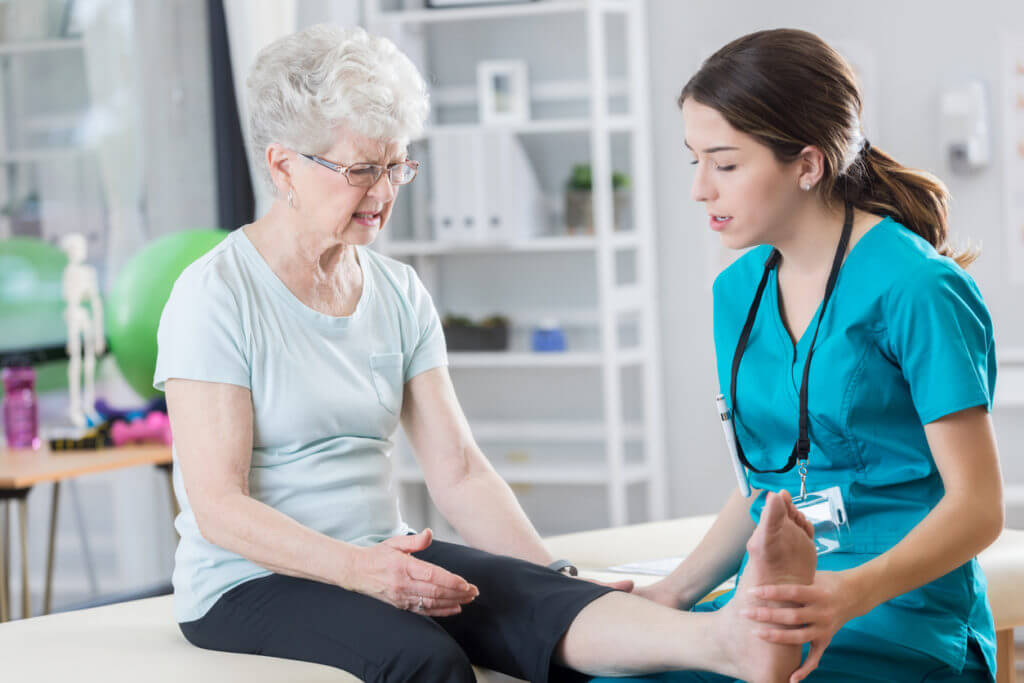
Arthritis is a group of conditions in which an individual experiences inflammation and pain in their joints. The most common types are osteoarthritis and rheumatoid arthritis. While there is no definitive cure for arthritis, health care providers can create treatment plans tailored to manage your symptoms, such as pain and swelling. Here are some treatment options that your doctor may recommend.
Medication
Your physician may prescribe different types of medication for arthritis to manage your symptoms.
Painkillers
One kind of medication that helps with symptoms of arthritis is painkillers. Over-the-counter (OTC) options include acetaminophen or Tylenol. Your doctor may prescribe stronger painkillers if OTC medications are insufficient in relieving symptoms.
Counterirritants
Counterirritants can come in the form of creams, gels, and ointments. Ingredients can include capsaicin or menthol. When applied, the ingredients create a feeling of heat or cold on the affected joint, thus interfering with the transmission of pain signals from the joint.
NSAIDs
Nonsteroidal anti-inflammatory drugs (NSAIDs) are another form of medication for arthritis. This type not only alleviates pain, but it also reduces inflammation. Oral OTC choices include naproxen, such as Aleve, and ibuprofen. Prescription NSAIDs are also available.
Joint Injections
Your doctor can also recommend corticosteroid injections, which mimic the hormones your body makes in the adrenal glands. When taken in doses greater than what your body produces, it can suppress inflammation. Corticosteroid injections can be injected directly into the affected joint.
Physical Therapy and Exercise
Aside from medications, your doctor may include physical therapy in your arthritis treatment plan. Physical therapy for arthritis can help reduce joint stiffness and improve your range of motion.
Other low-impact activities arthritis patients should perform include stretching, walking, and yoga. Water exercises such as swimming and water aerobics can also help with pain and stiffness in joints. Aside from recommended physical therapy exercises, always ask your doctor about other activities beforehand.
Other Nonsurgical Arthritis Treatments
A few other treatments that can also help with symptoms of arthritis include:
- Heat therapy. You may use a water bag, a towel soaked in warm water, or a heating pad to relax muscles and relieve joint pain.
- Cold therapy. Ice or a cooling pad can reduce swelling and pain.
- Weight loss. Losing a healthy amount of weight can reduce stress on joints that bear your weight.
- Assistive devices. Canes and walkers can improve your balance and keep stress off some painful joints.
- Joint immobilization. Splints or braces can help the affected joint rest and protect it from further injury.
Surgery
When arthritis is severe and other treatments do not seem to alleviate symptoms, surgery may be an option. There are three types of surgery surgeons perform, depending on the individual’s case: joint repair, replacement, or fusion.
With joint repair, the doctor smoothens or realigns the joint surface. This procedure can reduce pain and improve the movement of the limb. Meanwhile, replacement entails a surgeon removing the affected joint and replacing it with an artificial joint made from metal, ceramic, or plastic. Joint fusion involves the fusing or welding of bones to reduce pain and improve stability.
Arthritis Treatments in Tucson, Arizona
Arthritis has no known cure, but you can manage its symptoms. While over-the-counter options exist, it’s always best to work with a doctor who understands your condition and can create a tailor-fit treatment plan for you.
Dr. Robert Lending can help you manage symptoms of your condition. He is board-certified in internal medicine and clinical lipidology, and has dedicated his career to providing high-quality and patient-centered care in Tucson, Arizona.
If you would like to schedule a consultation, give us a call at (520) 795-4291 or request an appointment online through our secure form. We look forward to helping you manage your arthritis, so that you can live as comfortably as possible.



